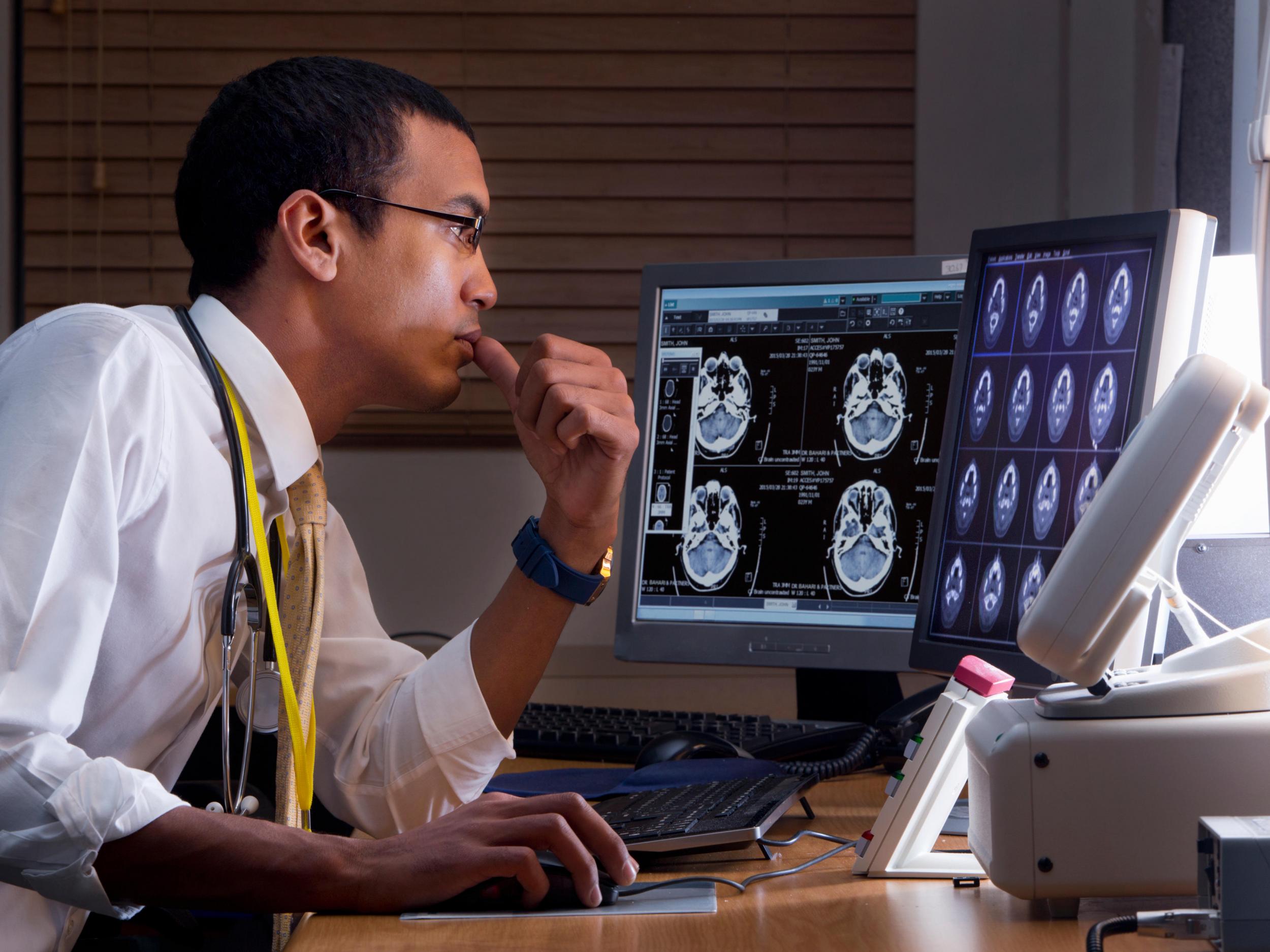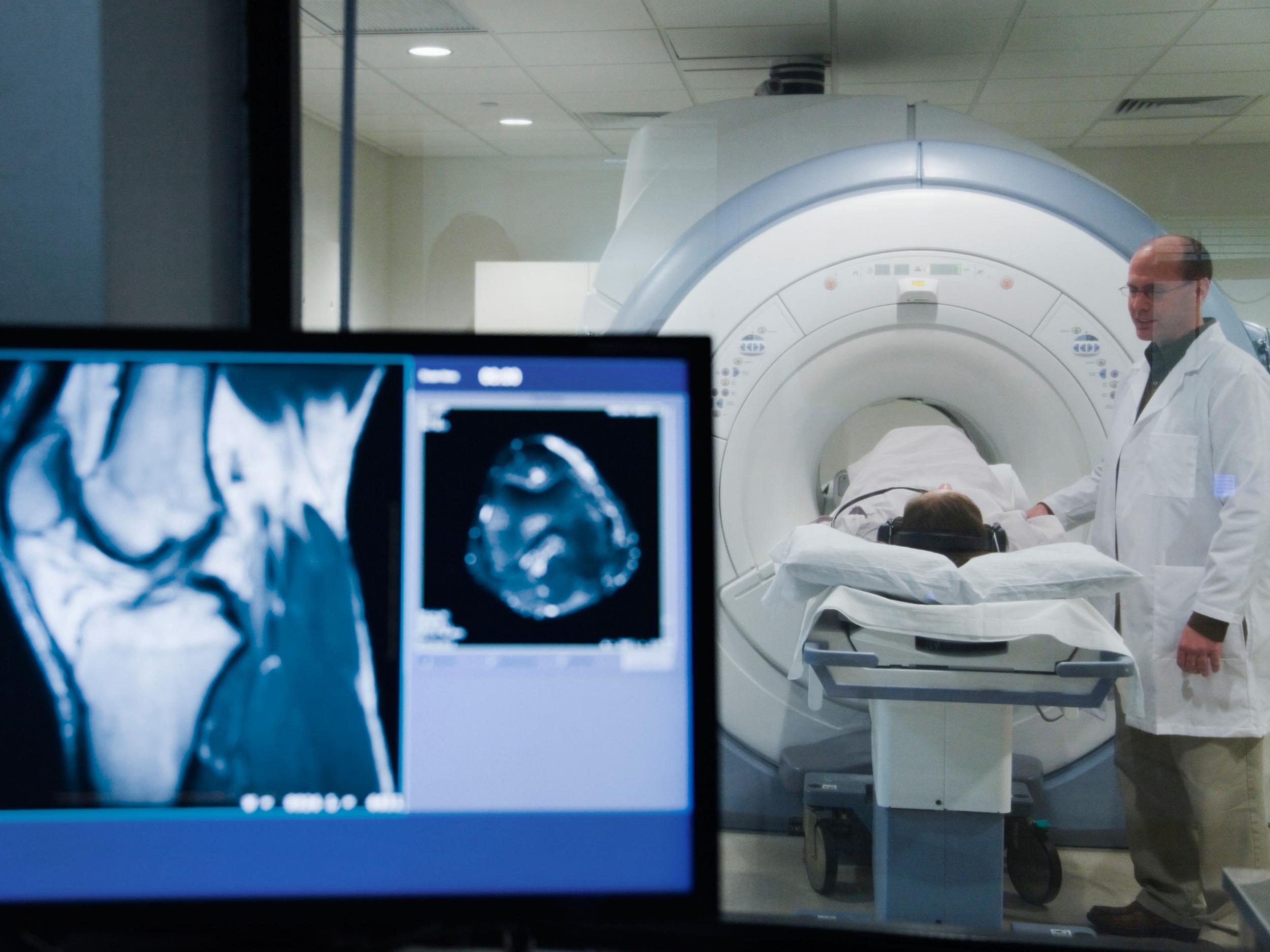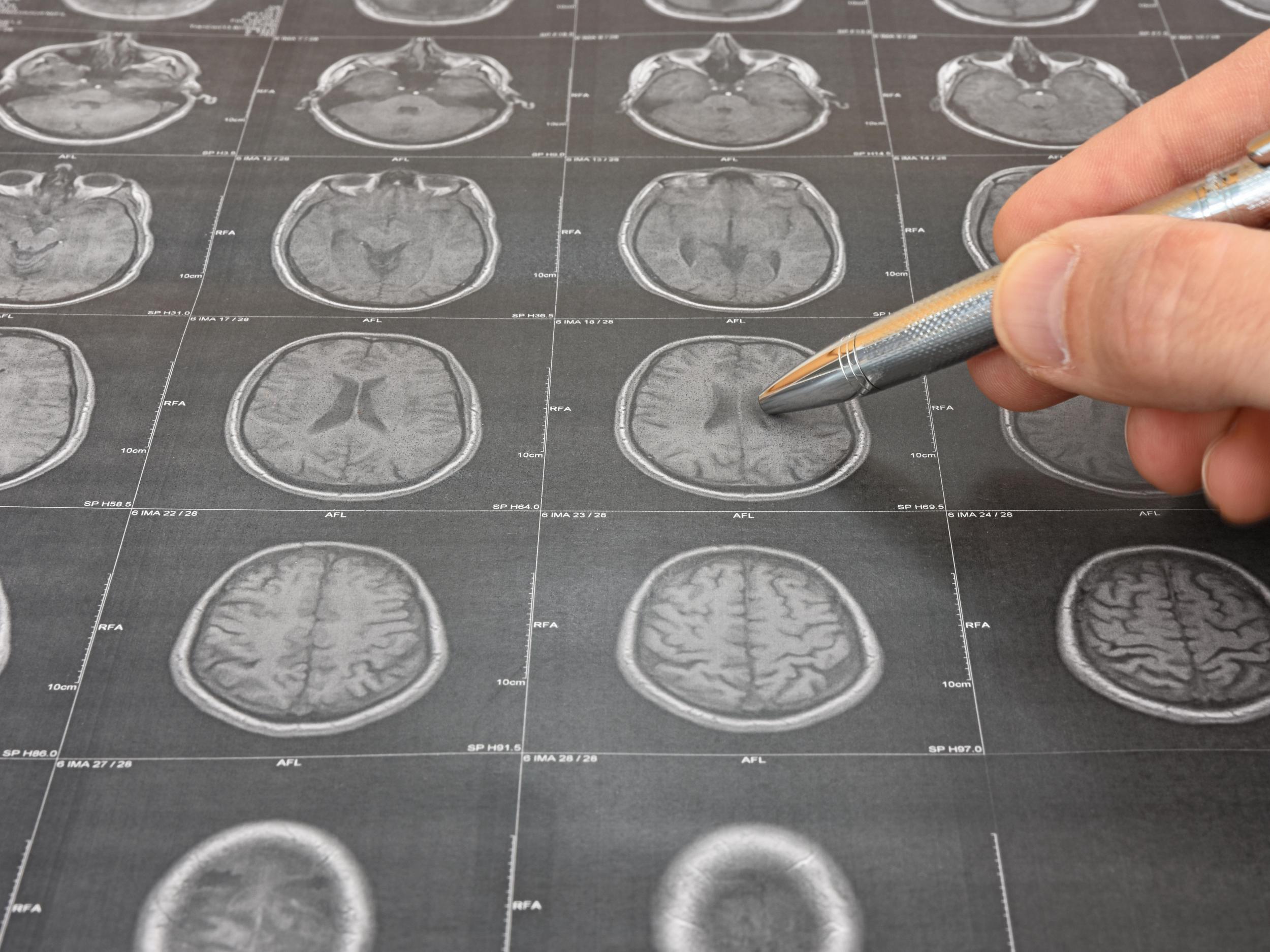My patient's smile: Why neurosurgery transcends medical care
Patients’ stories, their circumstances and their will does not always align with our plans as healers

Your support helps us to tell the story
From reproductive rights to climate change to Big Tech, The Independent is on the ground when the story is developing. Whether it's investigating the financials of Elon Musk's pro-Trump PAC or producing our latest documentary, 'The A Word', which shines a light on the American women fighting for reproductive rights, we know how important it is to parse out the facts from the messaging.
At such a critical moment in US history, we need reporters on the ground. Your donation allows us to keep sending journalists to speak to both sides of the story.
The Independent is trusted by Americans across the entire political spectrum. And unlike many other quality news outlets, we choose not to lock Americans out of our reporting and analysis with paywalls. We believe quality journalism should be available to everyone, paid for by those who can afford it.
Your support makes all the difference.“Dad, hold still.”
As we entered the hospital room that morning, our patient’s daughter was attempting to give him a shave. He was bed bound after his operation, and had grown a salt-and-pepper stubble.
A week earlier, his wife had brought him to the emergency room. He was behaving oddly, mumbling nonsensical sentences and stumbling through the house.
Sixty-two years old, male, Caucasian, new and profound neurological symptoms. An MRI of his brain seemed redundant but confirmed the diagnosis: a four centimetre malignant tumour was invading his right frontal cortex, the seat of his personality, where “Dad” lived.
I’m drawn to the human brain, its unforgiving and protean nature. Just five minutes without oxygen, and the brain loses function. The occipital cortex processes visual information and allows us to see faces, trees, the stars.
However, in a young child who becomes blind, as with Helen Keller, this same cortex can be repurposed for entirely distinct functions, like language processing.
Early astronomers looked to the heavens for answers. But in the human brain, a three pound ball of fat, there resides enough mystery and potential to have satisfied Galileo, Kepler and Brahe.
And so I found myself, on what had now been a four year foray towards a career in neurosurgery, helping care for this patient. I was the sub-intern at a hospital away from home for the month. It was my first week on the job.

The resident and I stood around his bed in our cerulean scrubs and white coats and watched him smiling. His daughter looked towards me, the only other man in the room, and paused, razor in hand.
“Would you like me to help?” I offered.
“Oh, would you?” she said, looking relieved.
She quickly handed me a foam cup filled with hot water and shaving cream, along with the razor. I chuckled to myself as I got to work, shaving his face. It was makeshift, but familiar.
The defiant angles, going against the grain here, giving in there, and that upper lip, the hardest part. The first European surgeons were barbers; what a homage.
I dried his face with a towel. His daughter thanked me. Even with a brain tumour, and the obligatory exams, tests, and treatments that ensue in a hospital, everyday life goes on. He needed a shave because he always has.
In the hallway, I caught up with the resident.
“He’s always smiling,” I said.
“Why do you think that is?” she asked knowingly.
I had an inkling before, but it was obvious now. He was smiling because he had no choice. The tumour, or maybe the surgery he had undergone to remove it, had robbed him of his expression.
He might feel despair, elation, anger or fright, but now he could only ever smile. It seemed somehow cruel.

We visited the patient later that day, now with the attending neurosurgeon. The patient had been refusing to eat for the past few days, and his laboratory results belied his smiling face: low potassium and albumin levels, suggesting starvation.
What was he feeling right now? And how could I know? In all likelihood, I presumed, he was severely depressed. Maybe he was electing to stay mute.
The attending neurosurgeon pleaded with him to eat. He just smiled. He refused to open his mouth, even after multiple attempts at feeding him. The neurosurgeon nodded to the resident, who quickly left. I followed her into the hall.
She was getting a nasogastric tube, a thin plastic device we could thread through the nostril and into the throat until it reaches the stomach. The patient needed nutrition if he was to recover.
Feeding him through this tube was the best option for keeping him going. I offered to place it.
Once we were back in the room, we explained to him and his family the need for the tube. It was worlds better than placing a tube into his stomach surgically, we told them. He nodded and it seemed he understood, smiling.
I attempted to place the tip of the tube into his nostril, and he struggled. He used his hands to swat me away. The resident held his left arm and I held his right. If we could not place this tube, he would only suffer more, we reasoned.
I tried again, but he was strong, straining his neck and avoiding the tip. Our eyes met. I wondered what he saw. Did he see the person who had earned his trust earlier that morning? Did he see betrayal?
With one final attempt, the tube slipped into his nostril and down into his throat. I quickly threaded it into his stomach and taped it in place to hold it steady.

We restrained his arms with the harnesses that dangle from hospital beds for such situations. Given any chance, we figured, he’d pull the tube out.
As I left for the final time that day, I tried to say goodbye. His smiling expression was the same as always, but I felt he was looking at me differently this time.
I said goodbye to his wife and daughter as well. They were perturbed, but grateful nonetheless, circumstances being what they were.
And the days passed. I heard that the patient was moved to a different ward to convalesce. With different surgeries and tending to other patients, time was limited.
I passed through the ward every night before I left for home, hoping to catch up with the patient and his family.
One night, I found him asleep and could not bear to wake him. I could make out his huddled shoulders under his blanket, his face to the window.
Later I heard he’d been discharged, and I would not see him again. But his case makes me reflect on the patient encounter.
In one or two meetings, doctors take a cross section of an intricate life, arrive at a diagnosis, provide treatment.
For this patient, our goal was to place the tube, to take care of his body. But it did little to address his feelings, or his probable depression.
Patients’ stories, their circumstances, their will does not always align with our plans as healers. I need to recognise that more. I need to see.
I’d like to think that the patient regained his appetite for life. I need to believe that.
© New York Times
Join our commenting forum
Join thought-provoking conversations, follow other Independent readers and see their replies
Comments